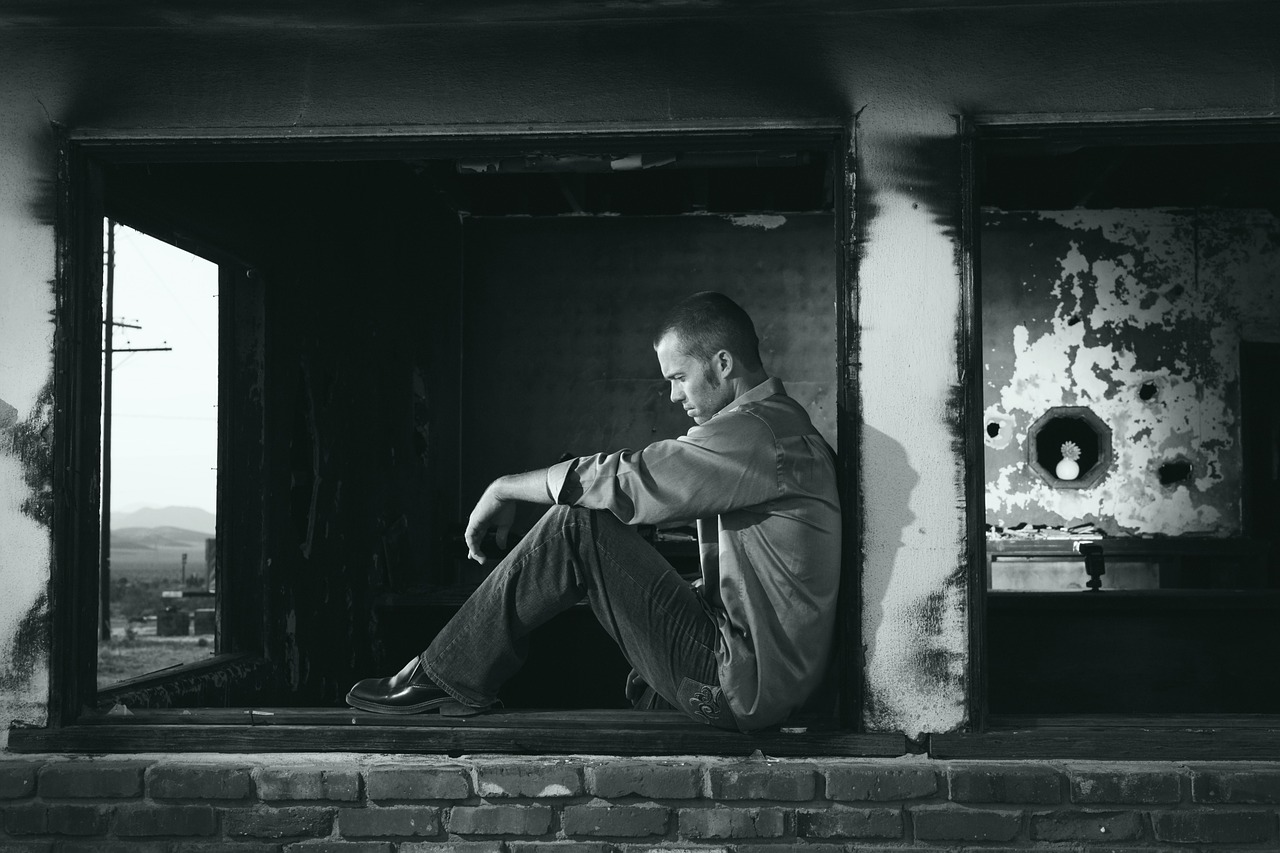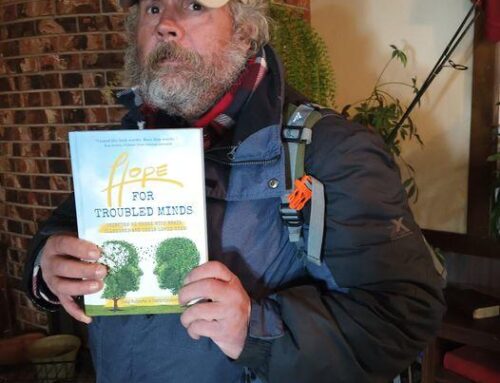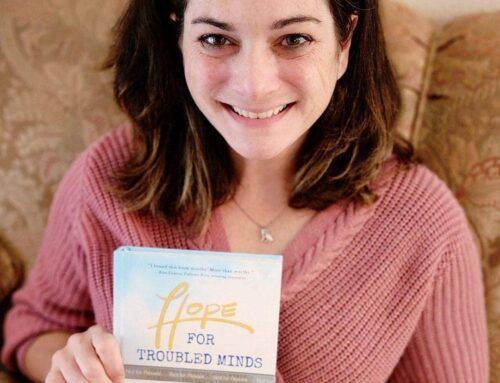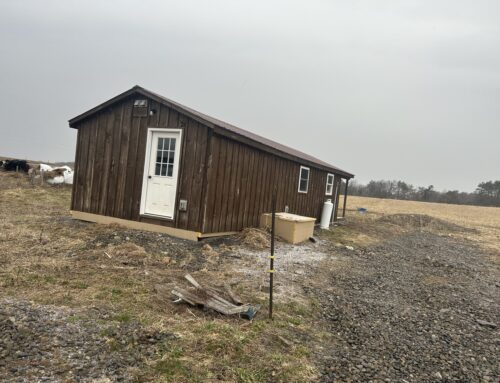At age 55, my father-in-law was diagnosed with an advanced stage of colon cancer. He received an aggressive round of chemotherapy. Inexplicably, he went into a coma. We recruited prayer warriors throughout the country. In just a few weeks, one of his medical interns happened to read a case study that perfectly fit my father-in-laws profile. They adapted his treatment. He returned to full function. He is now 85 and enjoying life to its fullest.
Prayers answered, “Yes.”
Some time ago, my (then) wife and I separated after 20 years of marriage. I desperately wanted to reconcile. I sought intensive counseling for over a year. I met with church elders and deacons. I prayed. My family prayed. My friends prayed. My church prayed. After 5 years, it became clear marriage reconciliation would not happen and we got a divorce.
Prayers answered, “No.”
I served in pastoral ministry for twenty years while battling bipolar. When I was diagnosed, the hospital staff told me I would never serve in ministry again. Yet, through the power of the Holy Spirit, our ministry became even more fruitful. God blessed us with growth and abundance. I was not healed from my mental illness, but I was given God’s grace which was more than sufficient. The prayers of God’s people sustained me.
But in 2008, I experienced a radical decline in functioning. I was advised by my doctors and ministry supervisors to resign. I was blessed to receive a disability package. But, I wanted to work. For over 5 years, I prayed that I would find “gainful employment.” Others joined me in prayer.
Prayers answered, “Wait and See.”
In 2011, I began writing again. It was a dream deferred by the demands of earning a living wage. Now, it became my clear calling. In 2014, I published my spiritual memoir. Writing has become my passion, my vocation. God has fashioned this into a new ministry, reaching people both within and beyond the faith community.
God answers every prayer, though not always in the way we want.
Pete Grieg is the founder of the 24/7 prayer movement. His community took a leap of faith and made a commitment to establish a room to pray around the clock for at least one month. That was 1999. The ministry has continued since then and spread around the world. Grieg recently published the book How to Pray: A Simple Guide for Normal People. In it, he contends there is such a thing as unanswered prayer, pointing first to the example of Jesus:
In the garden of Gethsemane, we witness Jesus suffering pain at every possible level: physically, psychologically, and spiritually. “My soul is overwhelmed with sorrow to the point of death,” he said. The passage says that “being in anguish, he prayed more earnestly, and his sweat was like drops of blood. Jesus was suffering from a rare medical condition called hematidrosis, in which capillaries around the sweat glands can rupture under extreme anxiety and stress. Here, then, is a man suffering from unimaginable levels of distress. Whether your struggle with unanswered prayer relates to a physical illness, mental health, or a spiritual void in which God seems to have abandoned you, Jesus truly understands. He’s gone ahead and shown how to endure disorientation and pain.
Grieg goes on to say that “most unanswered prayers can be attributed to either God’s world, God’s war, or God’s will.” In God’s world, all prayers from everyone simply can’t be answered. Grieg writes, “If every bride had a sunny wedding day, every farmer would be praying in vain for rain.” Other prayers aren’t answered “because there is an active enemy at work in our world attacking and opposing the work of God.” Still, there are some prayers that go unanswered because they are contrary to God’s good purpose for us. Grieg quotes P.T. Forsyth:
We shall come one day to a heaven where we shall gratefully know that God’s great refusals were sometimes the true answers to our truest prayers.
Few of us have the spiritual maturity to accept the wisdom of this, but it is true nonetheless. Jesus got this when he closed his prayer at Gethsemane, “not your will, but mine be done.” Many of us get stuck in the reality that when we pray we sometimes get the very opposite of what we want and feel we need.
Singer-songwriter Iris Dement has a song called “The Night I Learned How Not to Pray.” It’s about a young boy who falls down the stairs and is rushed to the hospital. His sister witnesses this and, as he is rushed to the hospital, she enters deeply into prayer.
“Well I prayed into the evening, never even took the time to have a bite
I was sure if I prayed hard enough that God would make it right.”
In spite of her prayers, the boy dies. This crushes his sister’s faith.
That was the night I learned how not to pray
God does what God wants to any way
And I never did tell my mother,I kept it from my sisters and all my brothers
That was the night I learned how not to pray.
On the surface, this is a tragic story of unanswered prayer. A story of lost faith.
But I see more to it than this. It’s “I learned how not to pray. Not, “I learned to not pray. I don’t know what Dement means here, but I like to believe the little girl in this song does not abandon faith, but grows deeper in it. Some people who come to know sorrow turn their backs on God. Others, however, come to know God better. We walk closer with the One who suffered for us, who died for us so we might have hope for abundant life now and forever.
Discover more from Delight in Disorder
Subscribe to get the latest posts sent to your email.









I think sometimes we presume on God’s love. We are taught (in some churches at least) to “name it and claim it” and that is completely unscriptural.
That doesn’t mean we shouldn’t pray — in fact, Luke 18:1, it says, “Then Jesus told his disciples a parable to show them that they should always pray and not give up.”
We are not promised that God will answer our prayer the way we want, but He will answer our prayers in a way that will be best for us and ultimately bring Him glory.
Beautifully written, Tony. You’re right – many times, in the silence, God answer is, “Wait and see.” One of the verses I hung onto while I was waiting for answered prayer was Exodus 14:14 – ” The Lord himself will fight for you. Just stay calm.” (NLT) It took three years for my prayer to be answered, and in the wilderness, that verse was my singular hope.
Nevertheless, God also may answer our prayers in ways that don’t look like ways we think a “Yes” response might look like. We have to be open to His “Yes,” not just ours.
Great example, Susan.